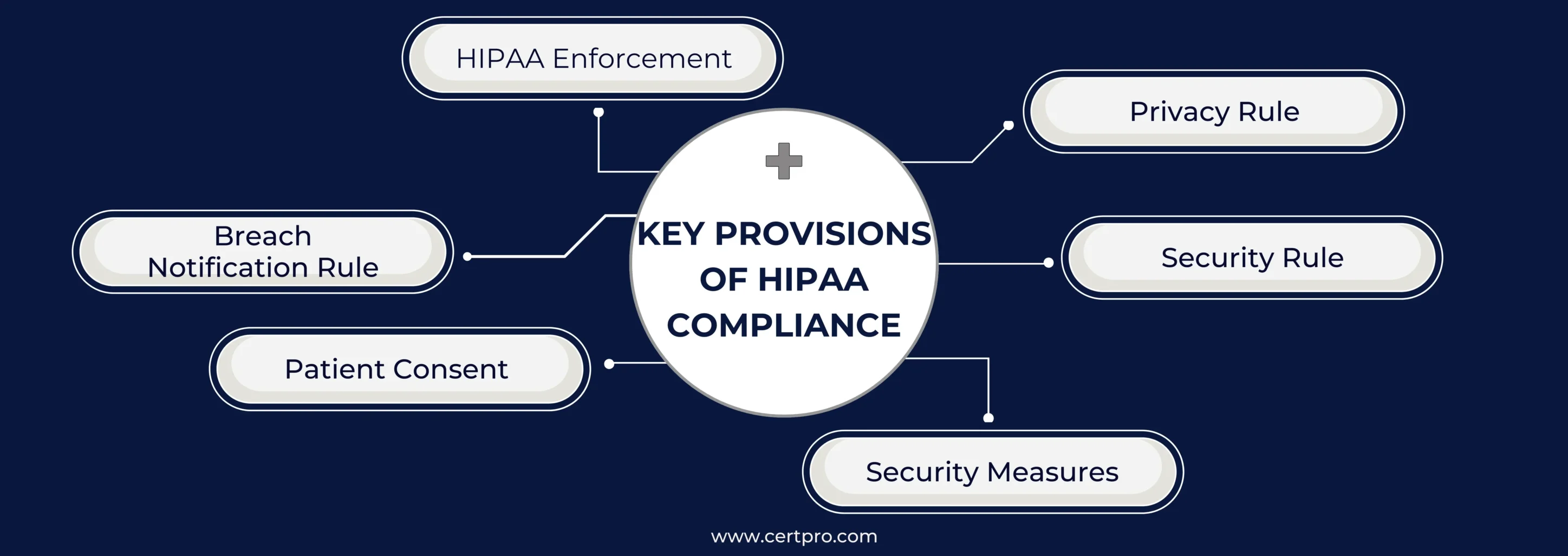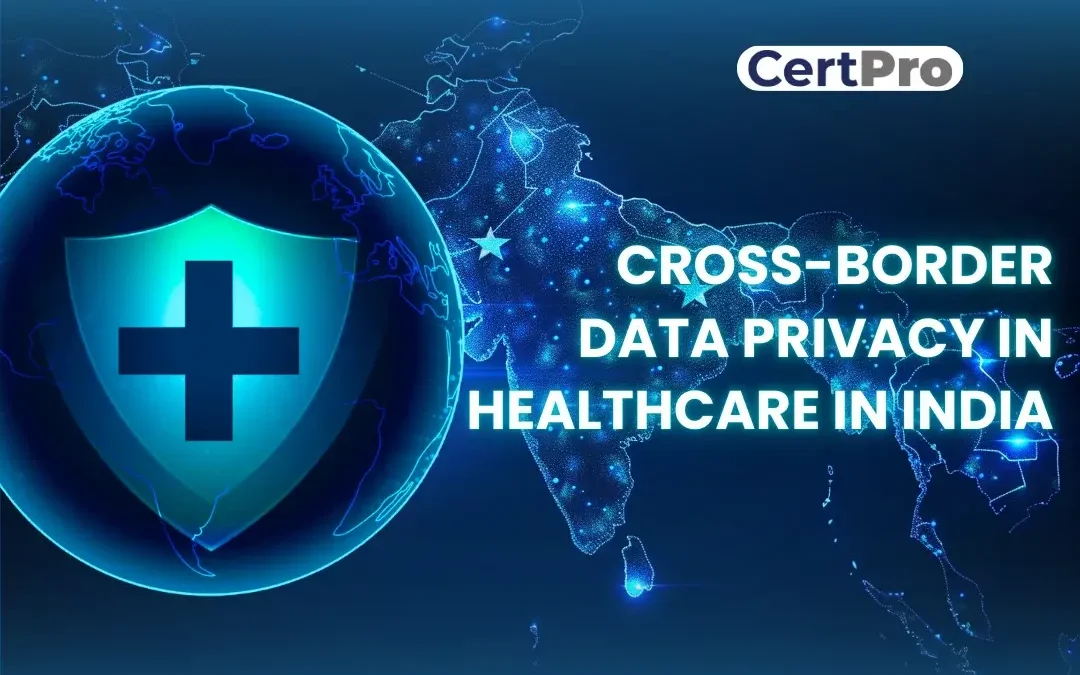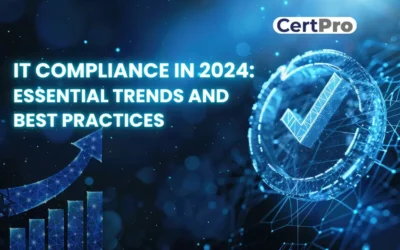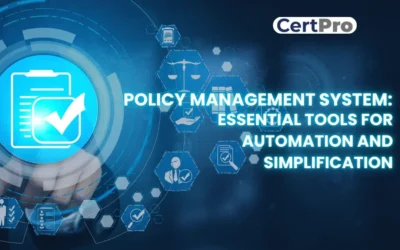Indian healthcare industries are expected to grow to approximately USD 50 billion by the end of 2025. The enormous digital innovation in healthcare sectors, remote care facilities, and artificial intelligence increase the prospects. However, the recent cyberattacks in AIIMS Delhi indicate the importance of data privacy in healthcare. Healthcare sectors handle multiple details of patients and their financial status. Therefore, sensitive patient data must be protected for the smooth functioning of your organization. Thus, data privacy in healthcare has become more prevalent in growing healthcare businesses in India.
This blog will delve into the importance of data privacy in healthcare in India and its role in managing an organization’s reputation and image. Finally, we will discuss how healthcare rules help in cross-border data transfer and keep the patient’s data safe. Stick to the article to make your healthcare business ethical and risk-free.
UNDERSTANDING HEALTHCARE DATA PRIVACY
When discussing data privacy in healthcare, we refer to policies and technologies used to protect sensitive health data in the healthcare sector. In addition, healthcare data compliance prevents unauthorized access to sensitive patient data and Protected Health Information (PHI). Health techs in India must have data privacy regulations to keep their PHI safe. However, implementing data privacy in healthcare can protect patients’ personal information and prevent the risk of digital intrusions.
The Importance of Data Privacy in Healthcare
Almost every business has to keep their clients’ and customers’ private information safe. But keeping private data safe is especially important in healthcare for several important reasons:
Develop Patient Trust: Hospitals and other facilities can gain patients’ trust by keeping their information safe. Patients who think the organization guards their data well are likelier to continue going to the same medical organization for their care. Trust from patients is crucial for medical businesses, from large hospitals to individual practitioners. Without faith, it is hard to provide them with the medical care they need and ensure they follow their doctors’ advice. Also, healthcare results are better when patients trust their providers.
Ensure Patient Safety: As we already discussed, healthcare facilities must ensure patient safety. If they do not keep patient information safe and organized, healthcare professionals could make mistakes, like diagnosing the wrong patient or writing the wrong prescription. Thus, the incident caused patients to lose faith in healthcare facilities. If this happens, it could affect the brand’s reputation and image. Data privacy in healthcare ensures that every piece of health information is secured for the patient’s safety.
Avoid Noncompliance Penalties: Data privacy violations in healthcare industries result in hefty penalties and reputational damages. The fine can sabotage your business and opportunities and deteriorate your financial stability.
HIPAA RULES IN CROSS-BORDER HEALTH DATA TRANSFERS
Different areas have different rules about sending health data across borders. Still, it is essential to know how important it is to follow the Health Insurance Portability and Accountability Act (HIPAA) when healthcare organizations and people subject to U.S. law are involved. The HIPAA law in the United States sets the rules for keeping private health information about patient safety. Although HIPAA mainly controls healthcare in the U.S., its rules can affect health data transfers across borders, especially when healthcare organizations handle information of the US citizens. Thus, HIPPA compliance in India is essential for healthcare industries to continue their ethical business.
Key Provisions of HIPAA Compliance Include:
Privacy Rule: The Privacy Rule sets national standards for protecting medical data and other personal health information. It limits how this information can be used and shared without the patient’s permission.
Security Rule: The Security Rule informs us how to keep ePHI safe. Covered organizations are responsible for protecting the privacy, integrity, and availability of ePHI.
Security Measures: According to HIPAA, electronic protected health information must be kept safe. Extra steps might be necessary when sending health information across borders to ensure the data stays secure.
Patient Consent: In some situations, a patient’s permission is required to transfer health information across borders. Patients’ privacy and the right to their health information are essential to HIPAA. It is vital to ensure that people know what’s going on and have given their permission.
Breach Notification Rule: If an unsecured PHI breach occurs, covered organizations must inform the impacted individuals about the incident within a stipulated time period.
HIPAA Enforcement: Violations of HIPAA compliance can result in significant penalties, including fines and legal consequences. Thus, the Office for Civil Rights (OCR) within HHS enforces HIPAA rules to avoid these consequences.
Healthcare organizations subject to HIPAA should do extensive research to ensure that their foreign partners follow the same standard of data protection before forming partnerships with them. Businesses should also make straightforward deals and rules to stay aligned with HIPAA compliance while sending data across borders.

CHALLENGES OF CROSS-BORDER DATA FLOW
Even though healthcare data privacy is paramount, it faces several problems in the cross-border data transfer process. Let’s discuss in brief:
Digital hackers can increase the risk for digitally interconnected systems during the transfer of information. Suppose an employee opens a suspicious mail that can potentially breach the other security barriers and access sensitive data.
The extensive use of telehealth services and technologies increases the risk of data breaches. Unencrypted information can sometimes cause data breaches during cross-broader data transfer.
Lastly, the cross-border data flow requires strong data privacy in healthcare to mitigate the emerging risk of complex malware attacks. Healthcare facilities must have solid digital security and solutions to prevent trespassers.
HOW TO IMPLEMENT DATA PRIVACY IN HEALTHCARE
Healthcare industries can avoid the risk of cross-border data transfer through data privacy in healthcare. Implementing this can resolve the above-stated challenges.
Differential Privacy: Implementing differential privacy algorithms is the most innovative healthcare data privacy solution. In a nutshell, differential privacy enables healthcare professionals to share patient details with minimum risks and threats. However, differential privacy makes medical data less accurate and less valuable. When analysts change data, they can not use it as well, which could lead to less useful research results.
Analyse User Trustworthiness: Medical organizations can also improve data privacy in healthcare by checking users’ trustworthiness in more detail. By keeping new or untrained staff from accessing sensitive patient data, they lower the chance that it will be leaked or stolen, intentionally or by mistake. You can trust that experienced doctors, allowed staff and other licensed individuals will not abuse patient data and will not leave the proverbial door open for cybercriminals.
Analyse Data Breach Risk: Similarly, healthcare facilities and private healthcare workers can ensure their patients’ safety by conducting regular breach risk analyses. For example, every hospital or clinic needs robust security software for its systems and applications. Thus, malware and other digital risks can not harm healthcare systems or steal private patient data if you have strong antivirus software. Regular breach risk studies by security firms can help hospitals strengthen their digital defenses and make it less likely that there will be a security breach in the future.
Ensure Employee Training: Digital security demands employee training and upgradation. It helps maintain digital hygiene in your healthcare business, prevent human error, dodge security attacks, and ensure data privacy. Thus, employee seminars and training sessions create awareness of digital threats and reduce the risk to patient data through unintentional activities.
Regulation of Compliance: Healthcare sectors must remain updated about their regulatory standards and compliance requirements. Therefore, an updated version of controls and compliance minimizes data breach risk and impacts business growth and stability. Thus, regular auditing and compliance monitoring ensure the proper functioning of controls and compliance adherence.
HOW CERTPRO HELPS HEALTHCARE BUSINESSES IN INDIA TO STAY COMPLIANT
Data privacy in healthcare can be an excellent way to keep doing business ethically and avoid problems with cross-border data transfer. Healthcare will always need to make sure that data is safe. People who want to steal your information always find new tricks to break your security barrier. CertPro knows what it takes to follow HIPAA compliance in India. Our skilled auditors will help establish a solid system to protect patients’ information. Thus, our suggested controls will significantly lower the chances of unauthorized entry or breaches.
Furthermore, we promise to keep your business data private and aligned with the legal frameworks of your healthcare business. We also use advanced data security controls to find possible threats, the chance of data breaches, and incidental reaction plans that assist you in the reduction process. If you are searching for a guide and mentors for your data privacy in healthcare, visit CertPro.com for more precise information and help.
FAQ
What does health data privacy mean?
Health data privacy refers to the policies and technologies that protect sensitive health information from unauthorized access and breaches, ensuring that patient data remains confidential and secure.
Can you provide an example of privacy protection in healthcare?
An example of privacy in healthcare is the requirement for patient consent before sharing their Protected Health Information (PHI) with third parties, ensuring that patients have control over who accesses their data.
What are the key regulations for data privacy in Indian healthcare?
Key regulations include the Health Insurance Portability and Accountability Act (HIPAA), which sets standards for protecting patient information, and compliance with local data protection laws.
How can healthcare organizations protect patient data during cross-border transfers?
Healthcare organizations can protect patient data by implementing robust encryption methods, ensuring compliance with HIPAA regulations, and obtaining patient consent before transferring sensitive information.
Why is patient trust vital for healthcare providers?
Patient trust is crucial as it encourages individuals to seek care, follow medical advice, and engage openly with healthcare providers, leading to better health outcomes and enhanced provider reputation.

About the Author
SUBBAIAH KU
Subbaiah Ku is the Regional Director for CertPro in Oman, bringing a wealth of expertise in process and system auditing. As a seasoned lead assessor, Subbaiah is dedicated to ensuring the highest standards in compliance and security. His unique blend of technical acumen, rooted in Mechanical Engineering, is complemented by a diverse range of certifications and extensive training.
IT COMPLIANCE IN 2024: ESSENTIAL TRENDS AND BEST PRACTICES
IT compliance is essential for every organization to secure the integrity and accountability of data. The process also helps develop the business and enhance its profitability. In today’s digital era, IT compliance has more than just a regulatory checkbox. It plays a...
POLICY MANAGEMENT SYSTEM: ESSENTIAL TOOLS FOR AUTOMATION AND SIMPLIFICATION
Growing businesses indicates that you become a master in your field and accurately manage all business-related policies. However, managing company policies can be daunting significantly when your business expands. Here, an effective policy management system can help...
NAVIGATING DATA PRIVACY FRAMEWORKS: A COMPREHENSIVE GUIDE
Globalization has intense effects on business functioning and scaling. In today's digital world, companies are generating an unprecedented rate of data that requires protection from emerging cyber threats. In addition, recurring data breaches and privacy concerns make...




